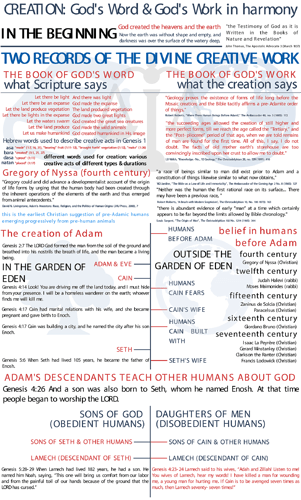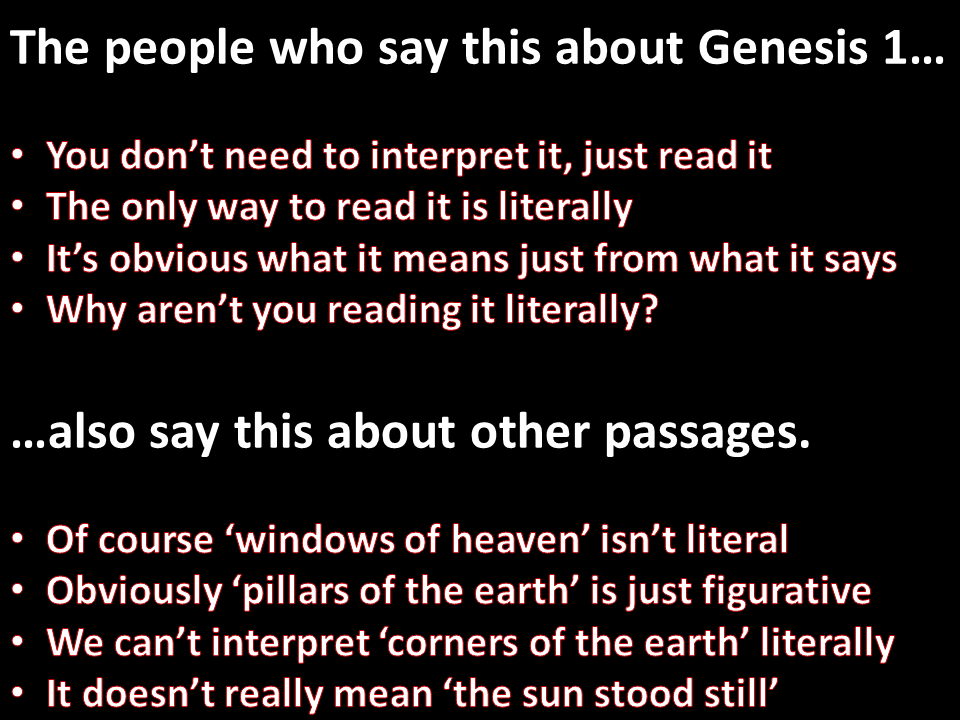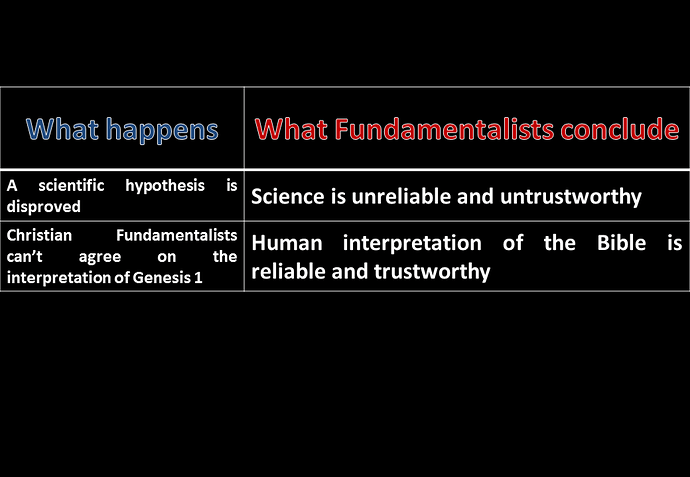No. If I one day find evidence in Scripture which convinces me Adam and Eve weren’t specially created, I’ll follow that evidence. Bu I don’t see it.
Yes I am very well aware of their position.
No I’m not. I’m fully prepared to accept that God could have created Adam and Eve via evolution, or could have selected them from an existing population. I just haven’t seen a convincing argument for this, and all the evidence I’ve seen points in a different direction.
Indeed.
No, I was commenting directly and specifically on Calvin. I didn’t mention any other forms of Christianity. You did.
[quote=“Eddie, post:166, topic:4380”]
…but if one is going to choose one’s theologian on the basis of that theologian’s failings in practical life…[/quote]
I have no idea what “choose one’s theologian” is supposed to mean, or why anyone would do this. Nor is it relevant what anyone else was doing in Europe at the time. What’s relevant is that Calvin simply didn’t follow Christ, like plenty of other murderers in his era who were at the same time extremely religious. End of story. Telling me all about how much he read and studied the Bible (as if I didn’t know), doesn’t change that. It’s patently obvious that the spirit of Christ was not at the core of how he lived his life.
[quote=“Eddie, post:166, topic:4380”]
The fact that Calvin was anti-Semitic, even if verified, would have absolutely no relevance to ascertaining the correctness of his Biblical exegesis or systematic theology regarding issues such as omnipotence, predestination, creation, fall, redemption, the sacraments, etc. That argument is strictly ad hominem and doesn’t warrant a theological reply.[/quote]
Firstly I didn’t say it had any relevance to ascertaining the correctness of his Biblical exegesis, etc, etc, etc. Though when someone is as anti-Semitic as he was, it’s clear they’re doing something wrong. Secondly you don’t seem to understand what an ad hominem argument is. An ad hominem argument takes the form “Person A has moral failing B, so his argument C is false”. I didn’t do that.
More handwaving. Yet again I see no specifics here.
In your opinion. I note once again the complete lack of quotations.
No. Wow, every single exchange with you involves dismissing a handful of subject changes, straw men, and distractions.
And I responded to that, and you haven’t replied to my points.
I don’t need to while you’re not even addressing my basic arguments.
I actually quoted a couple of examples of historical Christian thinkers saying that natural causes should be first sought for every phenomemon.
Maybe you mean “The Greeks had a different concept of nature to the Hebrews”.
More unsubstantiated statements.
More handwaving, and name dropping. Just quote them, if you’ve read them.
Which idea of phusis? Plato’s? Aristotle’s? Archimedes’? The Epicurean concept of phusis? The Stoic concept of phusis? Do you know the difference?
Don’t worry, this does not surprise me.
Because it isn’t relevant. Last time I looked, Aquinas wasn’t a Second Temple Period Jew. He was a medieval Catholic theologian attempting to marry Catholic theology with Aristotle. He was also a great big blunderer, and a very naughty man. Who cares what he thought about this?
Of course it’s what you were talking about. You said specifically “Sounds like: If an organism survives and thrives, it is fit. If it doesn’t, it isn’t fit”.
Oh I’m not cutting it off by any means. I’m simply telling you it’s not going to proceed until you understand the topic and you’ve read what you’re shown.


